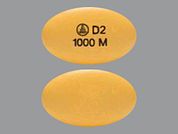Jentadueto Xr
Linagliptin/Metformin Hcl
What is Jentadueto Xr used for?
Linagliptin/metformin is used with a proper diet and exercise program to control high blood sugar in people with type 2 diabetes. Controlling high blood sugar helps prevent kidney damage, blindness, nerve problems, loss of limbs, and sexual function problems. Proper control of diabetes may also lessen your risk of a heart attack or stroke. This product contains 2 medications: linagliptin and metformin. Linagliptin works by increasing levels of natural substances called incretins. Incretins help to control blood sugar by increasing insulin release, especially after a meal. They also decrease the amount of sugar your liver makes. Metformin works by helping to restore your body's proper response to the insulin you naturally produce. It also decreases the amount of sugar that your liver makes and that your stomach/intestines absorb.
CHEMICAL NAME
DRUG TYPE
DiabetesJentadueto Xr Prices
Searching for the lowest prices
What does Jentadueto Xr look like?
View all Jentadueto Xr Image Information (2)Jentadueto Xr Frequently Asked Questions
If someone has overdosed and has serious symptoms such as passing out or trouble breathing, call 911. Otherwise, call a poison control center right away. US residents can call 1-800-222-1222. Canada residents can call 1-844-764-7669. Overdose can cause lactic acidosis. Symptoms of overdose may include: severe drowsiness, rapid breathing, slow/irregular heartbeat.
IMPORTANT: HOW TO USE THIS INFORMATION: This is a summary and does NOT have all possible information about this product. This information does not assure that this product is safe, effective, or appropriate for you. This information is not individual medical advice and does not substitute for the advice of your health care professional. Always ask your health care professional for complete information about this product and your specific health needs.

